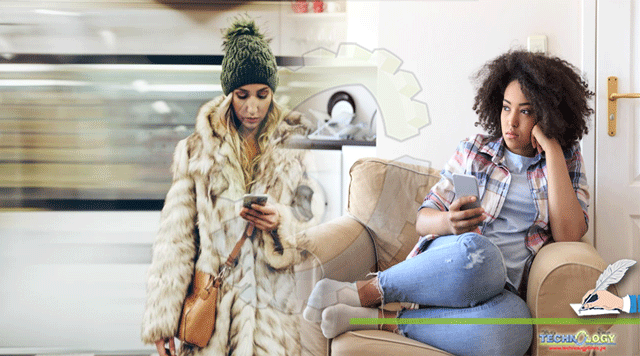Loneliness has become an epidemic in recent years. Due to increased internet and social media usage, more people are opting to connect online than with others in real life. Though one would believe that social media would immediately ease loneliness, the truth is a bit more complicated than that.

Presented by BetterHelp.
The amount and ways that you use social media can actually worsen your loneliness rather than ease it. This is because most users spend too much time on these platforms and don’t engage in them actively or in a positive manner. This article explores the connection between social media and loneliness and provides tips on using these platforms positively to improve your social life.
How Social Media Contributes to Loneliness
Though social media has been a tremendous positive for humanity worldwide, it has had a few side effects on loneliness and mental health. Below are some ways that social media worsens feelings of loneliness.
Substituting Social Media For In World Connection
Since connecting with others online is so much easier than striking up a conversation with a stranger, many people prefer this form of communication. However, though social media can be quite beneficial in making and sustaining connections, it can’t replace the satisfaction of creating relationships in real life.
Humans evolved to interact with others in person. We thrive off verbal communication, body language, and being in the physical presence of others. And though social media has had many benefits, interacting through comments and messaging simply cannot replace in-person interactions. Therefore, even if you message others online or follow their posts, you may still feel lonely because you aren’t physically interacting with other humans.
Comparing Your Life To Others
Many people only post the positive aspects of their lives on social media, making it seem that they are having endless fun and are constantly surrounded by friends and loved ones. Therefore, it can seem like everyone is always happy and has everything that a person could ever want. This can make it seem like everyone is doing better than you because they seem to have their whole life together.
With this trend happening, people will inevitably begin to compare their lives to those of the individuals they follow. Seeing all these amazing pictures and posts can make anyone feel inadequate or left out. It can seem that everyone else is having fun, achieving their goals, and surrounded by friends and support while you are alone and aren’t exactly where you want to be in life. This kind of comparison can make anyone feel lonely or inadequate.
Cyberbullying And Harassment
It’s no secret that there are trolls all over the internet. Though some people have come to accept that this is just a part of social media, the truth is that their harassment and bullying techniques can be harmful. These trolls often will say or do anything to ruin someone’s self-esteem, making the person feel unworthy or unlovable. Therefore, they may isolate themselves and feel intense loneliness due to this hateful harassment and messaging.
How To Use Social Media Mindfully To Combat Loneliness
Healthy boundaries and limitations are crucial to using social media to benefit your mental health rather than harm. The best boundaries for you will depend on your social media usage and how it affects your mental health. Though some people may benefit from fully disconnecting from social media, this isn’t necessary to heal your loneliness. Instead, you can use social media mindfully to gain some social and mental health benefits. Here are a few tips on how to do just that.
Use It To Connect With People You Know In Real Life
Social media works best as an additional way to connect with people you already know and love. Though there is no problem with meeting great people online, social media also serves as a way to strengthen and improve existing relationships. Therefore, if you don’t enjoy connecting with strangers online, then just use it to connect with the people you know in real life.
Limit Your Usage
Research shows that using social media in limited amounts can benefit one’s social life and mental health. That’s because using social media in these small doses pushes people to use it more mindfully and leaves room for them to continue engaging in the real world. That means they not only interact with people online but make time for their responsibilities and other fun activities with people in real life.
Use It Actively To Meet Others
Many people lurk on social media instead of using it proactively. However, social media was designed for you to meet other people, not just privately observe their posts. After all, if you don’t make yourself known, there is no way for others to engage with you.
Therefore, if you tend to lurk, try being more active on your favorite social media platforms. Write kind and helpful comments on other people’s posts. Share posts of your own that are funny or inspirational. Join and engage in groups that partake in your favorite hobbies or discuss your favorite topics. The options are limitless.
Final Thoughts
Though people have experienced loneliness for millennia, social media has unfortunately worsened this problem. It discourages people from interacting with people in real life and creates an environment that encourages cyberbullying and FOMO.
However, social media is not all bad. By creating healthy boundaries and using social media proactively, you can use social media to improve your relationships instead of fueling your loneliness.
For more tips on how to heal and treat loneliness, you can find more information and advice here.